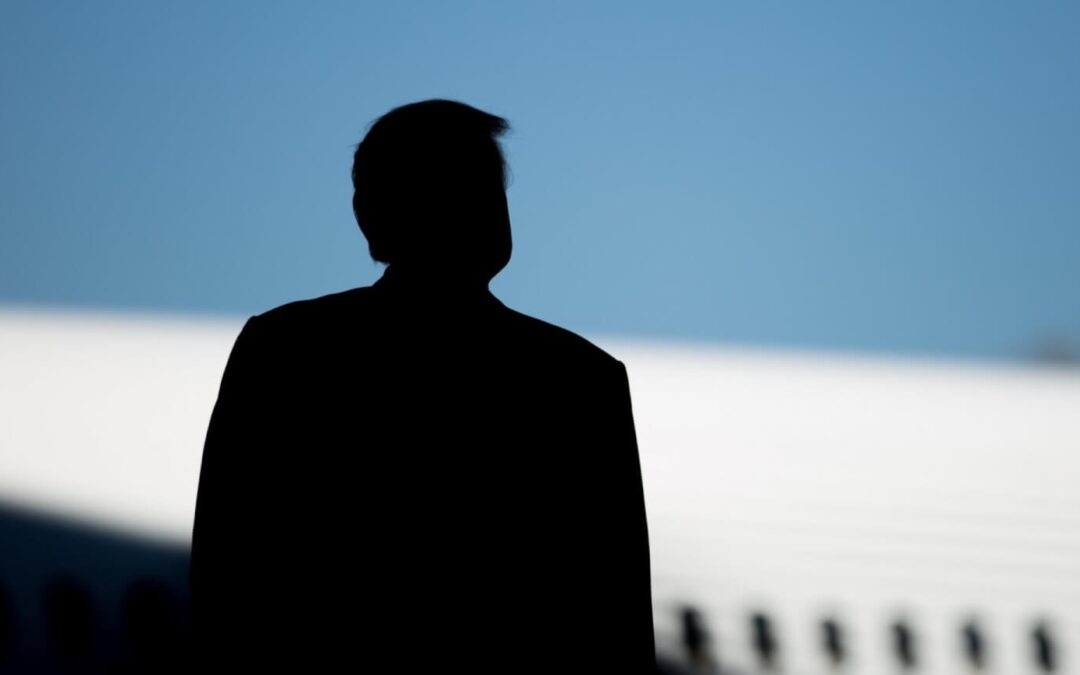Senior Trump administration officials are increasingly alarmed that Donald Trump might unleash — and abuse — the power of government in an effort to overturn the clear result of the election.
These officials told Axios that Trump is spending too much time with people they consider crackpots or conspiracy theorists and flirting with blatant abuses of power.
There are 32 days until President-elect Biden’s inauguration.
Trump today called for “wild” protests to occur in the nation’s capital on January 6, the final date on which he and his most hard-line Republican allies desperately hope to overturn President-elect Joe Biden’s victory.
Trump, who twice campaigned on being the “law and order” candidate, is hoping to create chaos in Washington two weeks before Inauguration Day.
As he continues to baselessly claim that it’s “statistically impossible” he lost, Trump today urged his supporters to interrupt what is typically an innocuous joint session of Congress on January 6 in which they will count Biden’s 306 to 232 win among state electoral votes.
Senate Majority Leader Mitch McConnell has urged Republicans not to object to the election results, but some GOP lawmakers and far-right conspiracy theorists say they plan to disrupt the final procedural hurdle before Biden takes office.
“Peter Navarro releases 36-page report alleging election fraud ‘more than sufficient’ to swing victory to Trump,” the president tweeted today. “A great report by Peter. Statistically impossible to have lost the 2020 Election. Big protest in D.C. on January 6th. Be there, will be wild!”
Twitter flagged Trump’s claim as “disputed,” as it’s done often of late.
Many Republicans and Washington law experts say Trump has zero chance of stalling the results and that his call for “wild” protests on January 6 is just a final desperate stunt.
Trevor Potter, Republican former chairman of the Federal Election Commission, penned a Washington Post essay warning American voters, “January 6 is not another Election Day. Don’t let President Trump convince you it is.”
All this is on top of Trump ignoring a surging pandemic that is now infecting more than 150,000 per day and killing more than 1,500 Americans per day.
Since Trump’s election, mental health professionals have come forth in historically unprecedented ways to warn against entrusting the U.S. presidency to someone exhibiting dangerous mental impairments.
‘The president’s dangerousness is no longer debatable,’ said Dr. Bandy X. Lee, a forensic psychiatrist at the Yale School of Medicine. ‘When the right information became available, a peer-reviewed panel of independent experts performed a standardized assessment of mental capacity, to the highest rigor possible, in which the president failed every criterion. This means he would be unfit for any job, let alone president.’
Other fears White House officials are privately discussing include Trump’s interest in former national security adviser Michael Flynn’s wild talk of martial law; an idea floated of an executive order to commandeer voting machines; and the specter of Sidney Powell, the conspiracy-spewing election lawyer, obtaining governmental power and a top-level security clearance.
A senior administration official said that when Trump is “retweeting threats of putting politicians in jail, and spends his time talking to conspiracy nuts who openly say declaring martial law is no big deal, it’s impossible not to start getting anxious about how this ends.”
“People who are concerned and nervous aren’t the weak-kneed bureaucrats that we loathe,” the official added. “These are people who have endured arguably more insanity and mayhem than any administration officials in history.”
At Friday’s meeting, first reported by The New York Times, Trump discussed making Powell a special counsel for election fraud.
The ideas included commandeering voting machines, with Powell as a special counsel to inspect the machines, according to a source familiar with the meeting.
White House counsel Pat Cipollone and chief of staff Mark Meadows “pushed back strenuously and repeatedly against the ideas put forth by Sidney Powell,” the source said.
The meeting included Flynn, who was pardoned by Trump in November and is a celebrity with election-denying Trump supporters.
Trump also responded to the massive cyberattack on U.S. government departments and agencies and private companies on Twitter today, claiming the “Fake News Media” is exaggerating the extent of the hack.
Trump, who had been silent on the attack until now, claimed that China may be responsible, contradicting Secretary of State Mike Pompeo and other governmental officials who have said that the breach was carried out by Russia.
Cybersecurity experts, intel officials and policymakers universally agree the hack was the work of a unit of Russian cyber operators known as Cozy Bear, believed to be backed by Vladimir Putin’s intelligence services.
And there’s widespread concern that they’re still in U.S. government and corporate computer systems, undetected.
This may turn out to be the most consequential hack in U.S. history, and one that has spurred lawmakers of both parties to call for a firm response.
Trump’s refusal to acknowledge what his own intelligence and national security experts are surely telling him will come as welcome news to the Kremlin.
Throughout his time in office, Trump has defended the country against multiple claims, including that it interfered in the United States’ 2016 election and the nation paid the Taliban to kill U.S. troops in Afghanistan.
The U.S. Cybersecurity and Infrastructure Security Agency has said the hack “poses a grave risk to the Federal Government and state, local, tribal, and territorial governments as well as critical infrastructure entities and other private sector organizations.”
President-elect Biden said on Thursday that the hack “is a matter of great concern” and promised to impose “substantial costs” to those responsible for the attack.
Microsoft President Brad Smith said on Thursday that it effectively amounted to “an attack on the United States and its government and other critical institutions, including security firms.”
The hack is known to have breached the Departments of Defense, State, Homeland Security, Treasury, Commerce and Energy and its National Nuclear Security Administration — plus the National Institutes of Health.
Multiple global corporations were also infiltrated.
